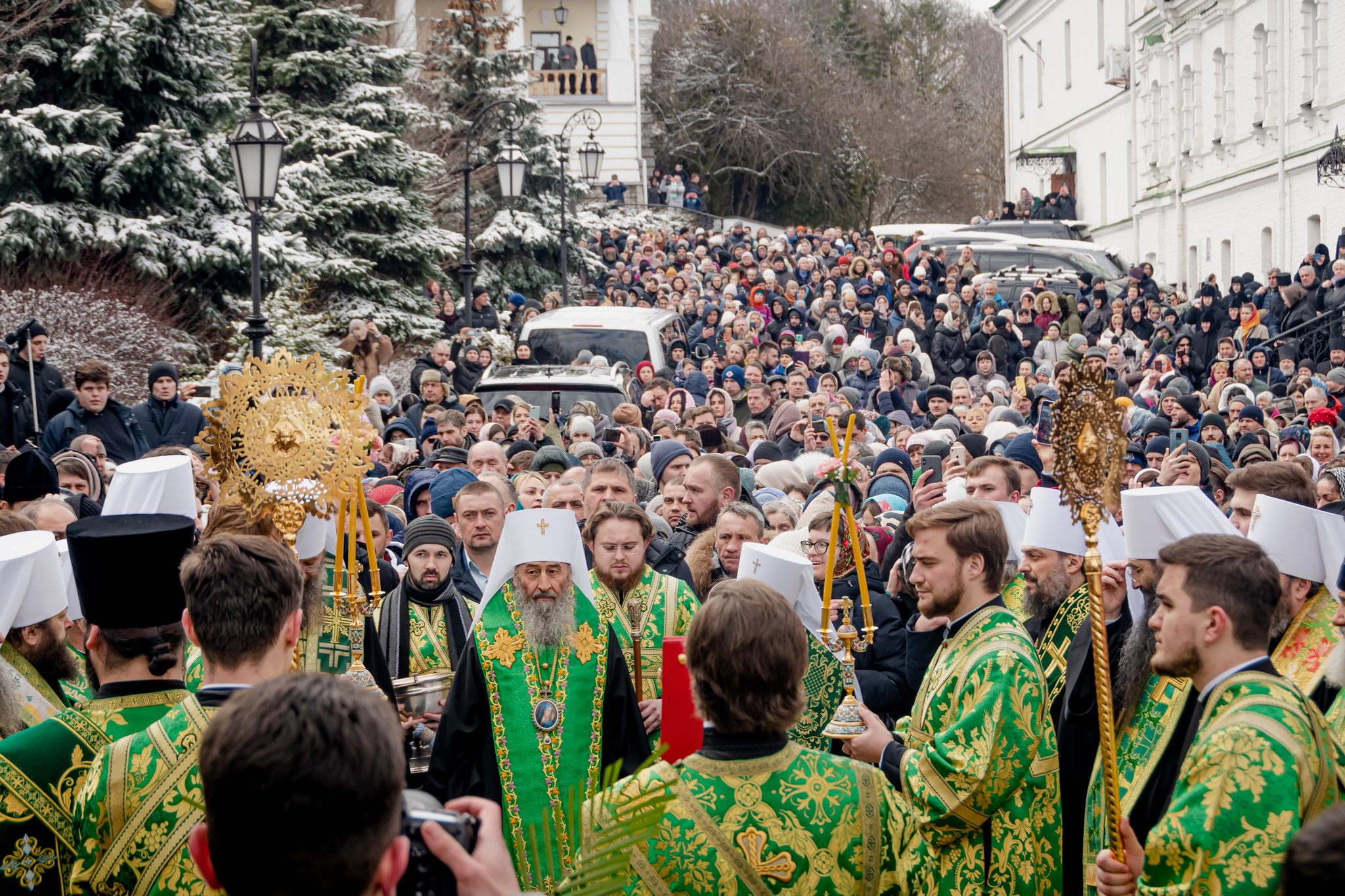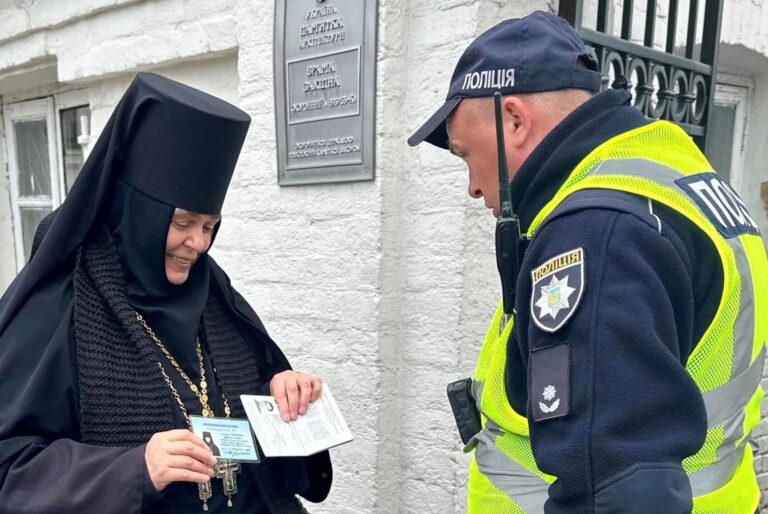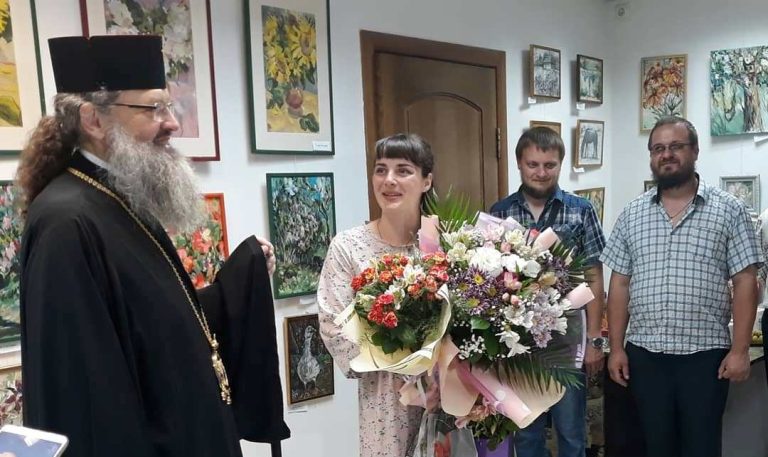We invited some academics from Europe and the USA to assess the legislative initiatives in the religious sphere in Ukraine. We strive to find out what an adequate state policy can be in a country that sees its future in the European Union.
This is the fourth text in English.
The answers translated into Ukrainian are available here —
Previous articles in the series:
- Expert №1. Don’t handle a mistaken idea of “unity” / Не піддавайтеся спокусі хибної «єдності»
- Expert №2: Russian documents should not determine the fate or name of the UOC, as well as any organization in Ukraine / Експерт: Документи росії не повинні визначати долю чи назву УПЦ, як і будь-якої організації в Україні
- Expert №3: Expert: The Turkish authorities disputed the right of the Patriarchate of Constantinople to use the concept “Ecumenical” for its self-name / Експерт: Влада Туреччини оскаржувала право Константинопольського Патріархату називатися Вселенським
(It was our conscious decision not to open now the names of the experts. According to our agreement with them, all comments will remain confidential for at least three weeks from the beginning of the publication. After that, each expert is free to decide whether he/she is ready to open his/her name. Why did we do that? Read more here:
Seven questions to international experts about religious freedom in Ukraine)
***
Question no. 1. On the requirement to rename the UOC
We are believers of the UOC, and as citizens of Ukraine, we feel in a certain impasse.
https://dialogtut.online/dont-handle-a-mistaken-idea-of-unity/embed/#?secret=Jvq2hTup43#?secret=R3kXAMSwTL On the one hand, the so-called “law on renaming” no. 2662-VIII, adopted on December 12, 2018, came into force. According to the decision of the Constitutional Court of Ukraine on December 27, 2022, it was recognized as not being contrary to the Constitution of Ukraine.
In 2019, the religious expertise of the Ministry of Culture was published, as well as in 2023 the conclusion of the religious expertise of the SEFC (DESS) – both of them represent the UOC as a component of the Russian Orthodox Church. Both documents are disputed by the UOC in the courts.
From this perspective, we, the faithful of the UOC, are reproached: “Your Church is not renamed in accordance with the current law. Why does the UOC not comply with the law? If you are for the rule of law, follow the law!”
On the other hand, we as members of this religious organization perceive the state’s attempts to indicate to a religious organization what it must be called and what data must be mentioned in its title, as discrimination on the basis of religion and unacceptable humiliation. Because we, as citizens of Ukraine, are legally forced to play by the rules of the aggressor state. It is also obvious that the Russian Orthodox Church will not remove the UOC from its statutory documents, therefore, we will be in one or another way subject to the law on renaming.
What does this situation look like in terms of international standards of religious freedom and human rights? Are there precedents in other democratic states with the rule of law where authorities “bring order” in the religious sphere, setting strict restrictions on the titles of religious organizations?
***
ANSWER.
The religious politics in Ukraine departs from the assumption that the state has to organize the religious communities (RCs). That does not concern their inner life, but certain regulations of their existence in Ukraine. The DESS website describes its tasks as “реалізація державної політики у сфері (..) релігії” and “внесення на розгляд Кабінету Міністрів України пропозицій щодо формування державної політики у сфері (…) релігії”. That implies that there is a state politics towards RC which DESS has to put into life, and it can even propose how that politics should look like.
The idea that the state exercises some kind of control of RCs, is questionable as it disrespects the autonomy of RCs. It is a heritage of the Soviet era, as is the fact that there is a law about religion and a state institution which deals with religion. I do not say that this is undemocratic; there can be democratic use of such institutions. But I ask myself why that is necessary. The topics that concern both state and RCs, like religious institutions in public schools, army chaplaincy, or recognition of the theological degrees issued by church academies or seminaries, can be dealt with by the respective department of the state (ministry of defense, ministry of education etc.).
The problem I see behind such regulations is, as said above, the question of autonomy of RCs. They must enjoy the right of self-determination in every regard and not be an object of realizing state politics. It might be that a RC is not interested or willing in certain activities which the state wants it to do. Then the state should not be able to compel it to engage in such activities. If a RC’s autonomy is limited, then there is a danger that the RC is no longer free anymore to act as it sees fit.
The right to use one’s own name is a central right for individuals and for organizations which can only be limited when it violates the rights of others. One could even argue that the use of the “Ukrainian Orthodox Church” by the Orthodox Church of Ukraine not only collides with what is said in the Tomos but violates the right of the Ukrainian Orthodox Church to its own name. The same is valid for the creation of parallel institutions (like “Monastery of the Caves”). In any case, since names form the identity of an individual or a group, interventions in naming are always very sensitive.
I am not aware of a similar case when the state demanded a name change for a RC. Rather, states tried to establish alternative RCs. An example might be the “Chinese Catholic Patriotic Association” which was founded in 1957 by the Communistic authorities because they wanted to interrupt the contact of the local Catholics with the Vatican. Until now, we have this association which is recognized and controlled by the state, and an underground Church which regards the Vatican as its highest spiritual authority.
A different case was when communist Bulgaria intended to change the names of the Muslim population in the 1980s. These people frequently had Turkish names, and the authorities wanted to make them bulgarize their names (i.e. adding -ev or -ov, and giving Christian names instead of Muslim ones). These attempts failed because of the resistance of the Muslim population and the eventual end of the communist system. This case concerned individuals and not an organization, but it did concern all individuals within a certain group.
In the European Union, we find different models of the relations between state and RCs. In France, the state banned in schools certain articles of clothing and attire which are understood as a religious statement. That is in concordance with the French principle of a strict division between both. Following this principle, Christian statements (cross on a chain, collar of a priest) are no more allowed in state schools than those of any other religions (veil, yarmulke). In Germany, where there is a “cooperative” model, the Scientology Church was discussed in the 1990s. The government argued that Scientology is not a RC but an enterprise which wants to make money but calls itself a RC to be more attractive and to save taxes. Because of its undemocratic goals and means, Scientology is under the observation of the German security services, but it continues to exist legally under the name “Scientology Church”—just not as a RC in the eyes of the law.
Question no. 2. On international mechanisms for challenging the renaming requirement
According to the “law on renaming”, our Church must necessarily indicate in its statutory title the full title of the foreign religious organization of which it is a part, or “mark its place in the structure of a foreign religious organization”.
https://dialogtut.online/open-letter-to-the-leaders-of-international-organizations-and-g7-countries-regarding-the-religious-situation-in-ukraine/embed/#?secret=uQvxQouSiS#?secret=beCiopbUfB In the Statute of the Russian Orthodox Church, our Church is called “Ukrainian Orthodox Church”. Therefore, as far as we understand the logic of the current law, the title “Ukrainian Orthodox Church within the Russian Orthodox Church” would correspond to the law.
However, the 2015 ODIHR/OSCE recommendations (“Guidelines on the Legal Personality of Religious or Belief Communities” the OSCE Office for Democratic Institutions and Human Rights) indicate: “In the regime that governs access to legal personality, states should observe their obligations by ensuring that national law leaves it to the religious or belief community itself to decide on its leadership, its internal rules, the substantive content of its beliefs, the structure of the community and methods of appointment of the clergy and its name and other symbols. In particular, the state should refrain from a substantive as opposed to a formal review of the statute and character of a religious organization”.
What legal opportunities do we have as citizens of Ukraine to challenge the law on renaming at the international level, if all possibilities at the level of state legislation are exhausted? Is there none?
***
ANSWER.
I am not a lawyer; people more competent than I in this field can answer the question with regard to the formal ways of complaint. However, I think that the UOC and its members should use all legal means to resist the urged re-naming of its church.
Question no. 3. About Religious Expertise of the State
The website of the human rights organization “Forum-18” states that “the concept of a religious ‘expert examination’ is vague and legally questionable”. There is also a warning that across the post-Soviet region, including in Belarus, occupied Crimea, and Central Asian states “expert analyses” are often used to restrict freedom of religion or belief and other violations of human rights, including a reason for imprisonment.
In your opinion, in what cases and contexts are state religious expertises relevant? Is the expertise of the SEFC/DESS and its Conclusion on the Statute on Management of the UOC an instrument for restricting the religious freedom of the UOC faithful?
***
ANSWER.
Forum 18 is a renowned website for religious rights, and one can also find other voices saying that the expertise has its faults.
Ordering an expertise is not only a post-Soviet method, as you imply in your question, but also used to be a Soviet method to come to a result. One always can find experts who can confirm one’s position. Had the DESS chosen seven different people, it would have now an expertise that the UOC is not part of the ROC. So, an expertise is never an objective finding but each represents the opinion of specialists in a certain question, in which also other opinions can exist.
The decision of a ban, renaming etc. is a political decision which cannot be made by experts. Political decision makers (the parliament) usually have hearings with experts from all sides, and then they make a decision. So, the DESS could have solicited several expertises, with a really broad spectrum of opinions, and then weighed the arguments for making a decision and proposing it (or two alternatives) to the government. It is an error to believe that with an expertise, one gets the only correct answer.
If the decision made by the political bodies is against international right standards (as it seems to me with bill 8371 and other laws in connection to the UOC), then the political decision makers have to bear the consequences (like Ukraine being sentenced by international courts). Experts bear scholarly consequences for their opinion in scholarly discussions and public debates, but not on a political level.
Question no. 4. On changing the subordination of religious communities
Along with the constant destruction of hundreds of church buildings of the UOC as a result of the invasion of the Russian Federation into Ukraine, we experience many sad and even tragic situations around the church buildings in the context of the so-called “changes of belonging from the UOC to the OCU”.
https://dialogtut.online/seven-questions-to-international-experts-about-religious-freedom-in-ukraine/embed/#?secret=dBh9CD3HNZ#?secret=evIXOAisAS On the basis of the “law on changes of belonging” no. 2673-VIII of January 17, 2019, many UOC parishes lost access to their church buildings. In part of such church buildings, the OCU has now its worships, some are closed, and meanwhile the parishes of the UOC that had worships in those churches buildings before, have to gather for worships somewhere, including various non-adapted premises or even in the forest.
That means that the state intervened in the procedure for determining the belonging of religious communities and this had serious consequences for many UOC believers.
Repeatedly I heard: “There are no violations of the rights of the UOC believers, there are no problems with changes of belonging”. However, many of us, believers of the UOC, are acutely aware of the reality of these problems, we try to document and challenge them in a legitimate way.
Can we consider that the law no. 2673-VIII on the change of subordination/belonging meets international standards of human rights and religious freedom? Or on the contrary, this is the level of state intervention in the functioning of religious organizations that is inappropriate in a democratic state with the rule of law?
***
ANSWER.
This is again a question concerning law issues, therefore I cannot go into details. It seems to me, however, that the law is very badly formulated which causes a lot of problems in the religious sphere in Ukraine. Since it was made only days after the formation of the UCO, there was very obviously a political intention behind it. But it is not clear who the “hromada” is which is named in the text. In addition, there seem to be clear cases in which it was the local authorities which initiated meetings for a decision of a transfer. Without doubt, there were cases in which an overwhelming majority was for the transfer. However, I become suspicious when I see decisions made with 650 votes “yes” and only one “no”.
In the law it is foreseen that in case the parish splits, the smaller part has the right to constitute a new “religious organization” and to meet in an adequate room. There are cases when this right was not given, e.g. the new parish was denied registration. That was mostly done with the argument that the condition of renaming the religious group was not fulfilled (see above question 1). So it becomes clear that there is a political will and intention to ban or at least to diminish the UOC. The way to do this is by legal means, i.e. laws are made which make it impossible for many UOC parishes to continue to exist. With a little bit of good will, precautions could be taken which enable the existence of the UOC, without violating the law. But it is obvious that this good will is missing.
Question no. 5. About interaction with the state
The sense of unity that Ukraine lived in the first months of the full-scale invasion of the Russian Federation, for many believers of the UOC gave way to confusion or even despair. After all, we fight the aggression of the Russian Federation together with all others and suffer from it together with all others, but meantime a number of politicians, public servants, media and representatives of the OCU brand us enemies of our own country, try to erase us from its life, up to the prohibition of the activities of UOC organizations.
We strive to protect our rights and truth, but in a way that does not harm our state in conditions of the war.
Meanwhile, reproaches are heard against the UOC faithful: the war is an inappropriate time to appeal against the decisions of state authorities and to protect one’s rights in international institutions.
Where are the reasonable limits for protecting our religious freedom? When should we refuse to argue with our state, so as not to harm it, and when should we defend our rights, because this is important to us, ordinary people? And what would be conditions in a democratic state with rule of law to ban the activities of a religious organization?
***
ANSWER.
These are two rather different questions. The first one is about the relationship between the state and its citizens. Who is there for whom? Or, more concrete, as in the question: Who must be cautious not to make damage to the other side? I think it is very clear that the state exists for the citizens. It has to enable them to live a good life in dignity. In a democratic society, the citizens have the right to shape the state according to their will (in elections). Of course, the state can demand certain things from the citizens so that it can function and fulfill its tasks, things like paying taxes, obeying the laws, doing public services etc. But it is always clear that the state is in a ‘servant’ position regarding the citizens. That should be the ruling principle for the relations between both entities. Therefore, the rights of the citizens have priority in relation to the demands of the state. This principle can be limited if the use on one’s rights violates other people’s rights.
This leads to the answer to the second question. The ban of a RC does not depend on conditions, as asked in the question, but on the reason. If there is a reason to ban a RC, then it can be banned, regardless of the conditions. If there is no reason, then it must not be banned. I understand that in a situation of war, it is more difficult to stick to all rules. But it is even more important at least to try so. A country which is fighting an attack for its freedom and for its democratic development also has to stick to democratic rules. And there cannot be a free and democratic state when its citizens do not enjoy freedom.
Question no. 6. On trends in the religious life of Ukraine
What dangerous or encouraging trends in the religious life of Ukraine do you see?
***
ANSWER.
The impressive number of people who say they are “simply orthodox” indicates that many Ukrainians are not interested in the quarrels and would prefer a non-conflictual co-existence of the RCs, and less intervention by the state. One must say that this gives a little bit of hope, though it regretfully diminishes the strength of religion in the country. I am convinced, that in the end the discussions around the UOC will lead to a secularization of Ukraine.
The UOC and the OCU are obviously not capable of resolving their conflict by themselves. The intervention of the state makes the OCU convinced that it will eventually gain the upper hand and makes it less interested in finding a common path. The leadership of the UOC seems to be ready to accept the role of a martyr, but that does not help its flock at all. But even if the UOC as a RC will be completely banned, the faithful will remain. One can see from the questions in this interview that the faithful take a skeptical position towards the state. But a split of its society is not something that will strengthen Ukraine’s position.
Question no. 7. About expert advice to the Ukrainian authorities
If there would be an opportunity to advise the President, the Parliament, the Government of Ukraine on the ways relating the UOC in compliance with international regulatory standards, what would you advise to do in the sphere of state policy in conditions of the war?
***
ANSWER.
I think everyone in the Ukrainian leadership is aware that the first task is to defend the country and to win the war. I know that there were crimes committed by individuals in the UOC, but its official position is very clear. Why not make use of that positive position, but rather create a large group of people within the country who are unhappy with the government’s course? Most of them are Ukrainian patriots who are repelled by the government. The first time after the full-scale invasion, until summer 2022, shows that it worked well. Since summer and autumn 2022, the actions against the UOC have done much more damage to Ukraine than help.





